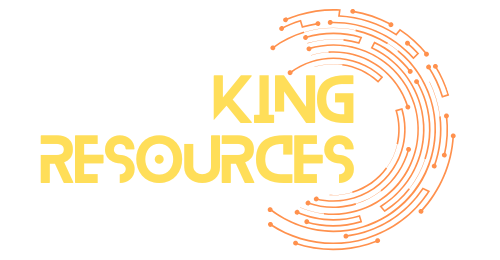When it comes to finding a place to call home, the age-old debate of buying a condo versus renting often leaves people scratching their heads. Should one take the plunge into homeownership or enjoy the flexibility of renting? It’s a dilemma that can feel like choosing between a cozy blanket and a comfy couch—both have their perks, but which one truly fits the lifestyle?
Table of Contents
ToggleUnderstanding Buying Condo Vs Renting
Buying a condo provides the potential for long-term investment. Homeowners build equity over time, which can lead to financial returns upon selling. On the other hand, renting offers flexibility. Renters can relocate easily without the burden of selling a property.
Costs associated with buying include mortgage payments, property taxes, and maintenance fees. Monthly expenses for renters generally consist of rent payments and security deposits. While buyers may face initial costs like down payments, renters usually avoid these upfront financial burdens.
Long-term stability characterizes condo ownership. Owners may enjoy lasting benefits like property appreciation and access to amenities. Renting allows individuals to test living in different neighborhoods before committing to a purchase. This approach helps assess community features and amenities, ensuring suitability for lifestyle preferences.
Homeownership also carries responsibilities. Owners need to manage repairs and upkeep, which can incur additional expenses. Conversely, maintenance generally falls to landlords for renters, providing peace of mind and less hassle.
Investment potential varies between the two options. The National Association of Realtors indicates that home values appreciate by an average of 3.5% annually. This statistic underscores the financial advantage of buying over time. In contrast, renters may face rent hikes, negating savings in the long run.
Ultimately, making a choice hinges on individual priorities. Evaluating goals, financial situations, and lifestyle preferences leads to informed decisions. Each option presents unique benefits and drawbacks that deserve careful consideration.
Pros of Buying a Condo

Owning a condo offers several advantages that cater to individual needs and long-term financial goals.
Equity Building
Equity building stands as one of the most significant benefits of condo ownership. As mortgage payments occur, property value typically increases, allowing homeowners to accumulate equity over time. Properties appreciate an average of 3.5% annually, bolstering investment potential. Homeowners can tap into this equity for future financial opportunities, such as renovations or secondary investments. Appreciation leads to increased net worth, providing security and financial stability. This ability to build equity sets condo ownership apart from renting, where monthly payments contribute to a landlord’s equity instead.
Stability and Control
Stability and control in living situations come with owning a condo. Owners enjoy the freedom to customize their living space according to personal preferences. Unlike renters, they aren’t subject to sudden rent increases or lease terminations, fostering long-term residential security. Homeownership encourages deeper community engagement, as individuals often stay in one place longer. A stable living environment can improve overall quality of life, reducing the anxiety associated with frequent relocations. Stability also complements financial planning, allowing homeowners to establish consistent budgets and savings goals.
Pros of Renting a Condo
Renting a condo offers various advantages that appeal to many individuals. Notably, flexibility and lower initial costs stand out.
Flexibility and Mobility
Adaptability defines renting a condo. Renters enjoy the freedom to relocate in response to job changes or lifestyle shifts. It’s easier for them to experience different neighborhoods without long-term commitments. For instance, a renter can try living in a bustling urban area before deciding where to settle down permanently. Lease agreements often last 12 months or less, allowing individuals to reassess their living situation frequently. This flexibility is particularly beneficial for young professionals or families in transition, making it simpler to find the right fit for their needs.
Lower Initial Costs
Lower upfront expenses characterize renting a condo. Renters typically only pay the first month’s rent and a security deposit, avoiding the substantial down payment required for purchasing a home. According to current market trends, down payments can reach 20% of a home’s price, resulting in a significant financial barrier. Rent payments can also be more manageable, particularly in competitive markets. Moreover, renters aren’t responsible for property taxes or maintenance costs, as these responsibilities generally fall to landlords. Hence, individuals can allocate funds to other priorities, such as savings or leisure activities. This affordability can offer a desirable lifestyle without the burden of hefty financial investments.
Cons of Buying a Condo
Buying a condo comes with several drawbacks that potential buyers should consider. Evaluating these disadvantages helps individuals make informed decisions.
Upfront Expenses
Upfront costs for buying a condo can be substantial. Buyers must prepare for a down payment, which typically ranges from 3% to 20% of the property’s price. Additionally, closing costs, often between 2% and 5% of the purchase price, add to the financial burden. Home inspections, appraisal fees, and homeowners’ association (HOA) fees also increase initial expenditures. Individuals need liquid assets to handle these expenses, unlike renters who only face the first month’s rent and a security deposit.
Long-Term Commitment
Long-term commitment often poses significant challenges when buying a condo. Owners typically sign 15- to 30-year mortgage agreements, creating a financial obligation that may limit future flexibility. In contrast, renting allows for shorter leases, often just 12 months. Selling a condo can be time-consuming and costly, primarily if the market fluctuates. Convincing potential buyers of its value might prove difficult during market downturns. Individuals should reflect on their long-term plans before committing to condo ownership.
Cons of Renting a Condo
Renting a condo comes with several downsides that individuals should consider before making their decision.
No Equity Accumulation
Renters don’t build equity in the property. Each monthly rent payment goes to the landlord without contributing to personal ownership. After years of renting, the total paid in rent forms no long-term investment. Interest rates and property values can enhance home equity for owners but leave renters with nothing to show for their payments. Exploring the financial impact of this choice reveals significant differences in wealth accumulation when compared to buying.
Potential Rent Increases
Renters face the risk of annual rent increases. Contracts typically allow landlords to raise rents upon lease renewal. This uncertainty can strain budgets, especially in hot rental markets. Consequently, what starts as an affordable living situation may become financially burdensome over time. Landlords often adjust prices in response to market trends, leaving renters vulnerable to sudden hikes. Understanding these potential increases is crucial for those weighing the pros and cons of renting versus buying.
Deciding between buying a condo and renting is a significant choice that reflects personal priorities and lifestyle needs. Each option offers distinct advantages that cater to different financial situations and long-term goals.
Homeownership can provide stability and the potential for equity growth, while renting offers flexibility and lower initial costs. Understanding these factors can help individuals make informed decisions that align with their current circumstances and future aspirations. Ultimately, the right choice depends on what matters most to them—whether it’s the security of ownership or the freedom to adapt to life’s changes.









